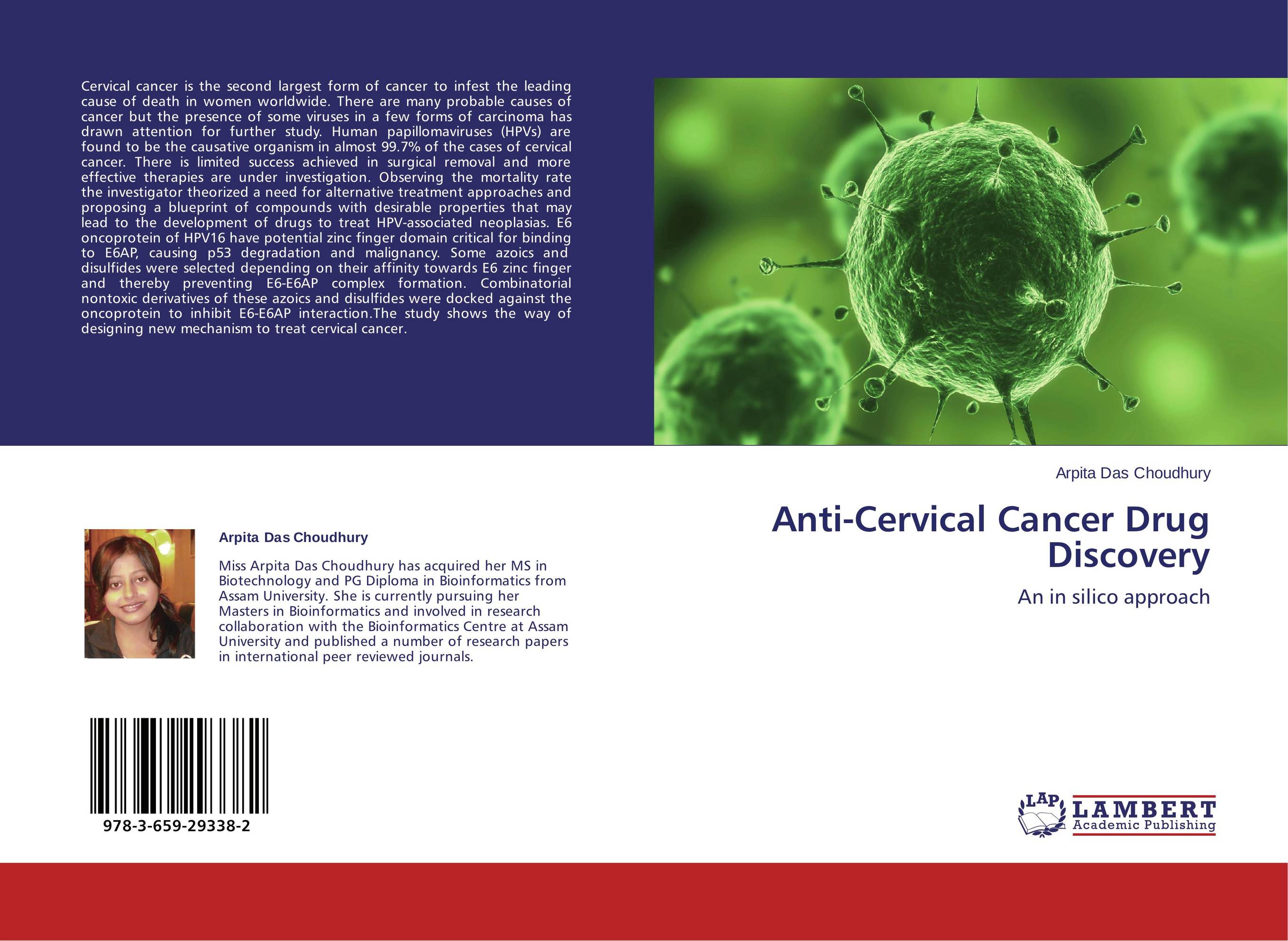| Поиск по каталогу |
|
(строгое соответствие)
|
- Профессиональная
- Научно-популярная
- Художественная
- Публицистика
- Детская
- Искусство
- Хобби, семья, дом
- Спорт
- Путеводители
- Блокноты, тетради, открытки
Anti-Cervical Cancer Drug Discovery. An in silico approach

В наличии
| Местонахождение: Алматы | Состояние экземпляра: новый |

Бумажная
версия
версия
Автор: Arpita Das Choudhury
ISBN: 9783659293382
Год издания: 2014
Формат книги: 60×90/16 (145×215 мм)
Количество страниц: 80
Издательство: LAP LAMBERT Academic Publishing
Цена: 23919 тг
Положить в корзину
| Способы доставки в город Алматы * комплектация (срок до отгрузки) не более 2 рабочих дней |
| Самовывоз из города Алматы (пункты самовывоза партнёра CDEK) |
| Курьерская доставка CDEK из города Москва |
| Доставка Почтой России из города Москва |
Аннотация: Cervical cancer is the second largest form of cancer to infest the leading cause of death in women worldwide. There are many probable causes of cancer but the presence of some viruses in a few forms of carcinoma has drawn attention for further study. Human papillomaviruses (HPVs) are found to be the causative organism in almost 99.7% of the cases of cervical cancer. There is limited success achieved in surgical removal and more effective therapies are under investigation. Observing the mortality rate the investigator theorized a need for alternative treatment approaches and proposing a blueprint of compounds with desirable properties that may lead to the development of drugs to treat HPV-associated neoplasias. E6 oncoprotein of HPV16 have potential zinc finger domain critical for binding to E6AP, causing p53 degradation and malignancy. Some azoics and disulfides were selected depending on their affinity towards E6 zinc finger and thereby preventing E6-E6AP complex formation. Combinatorial nontoxic derivatives of these azoics and disulfides were docked against the oncoprotein to inhibit E6-E6AP interaction.The study shows the way of designing new mechanism to treat cervical cancer.
Ключевые слова: in silico, Drug Discovery, HPV, Cervical cancer, Computational study, E6 oncoprotein, E6-E6AP



